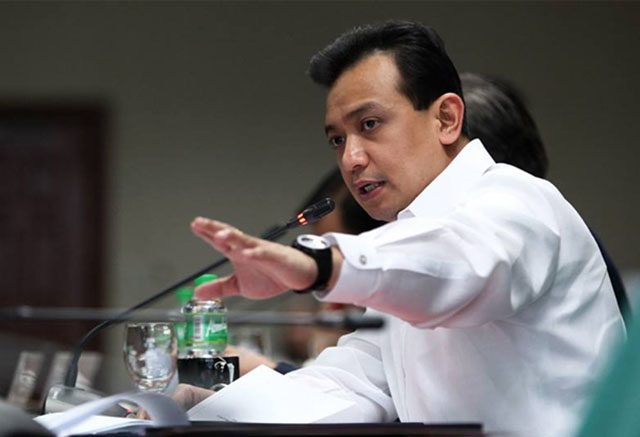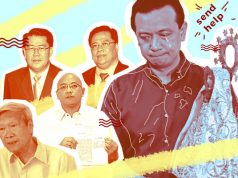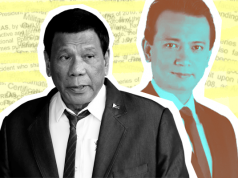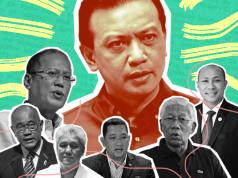
Malacañang’s revocation of the amnesty granted to Sen. Antonio Trillanes IV by the previous administration has revived the discussion on his past charges and how the amnesty paved the way for his government service.
Proclamation 572 circulated on Tuesday morning claimed that Trillanes’ amnesty was being revoked on account of his alleged non-compliance with the “minimum requirements to qualify under the Amnesty Proclamation.”
The recent proclamation stated that Trillanes never admitted his guilt and that a copy of his application for amnesty could be not be found, thus rendering the amnesty granted void ab initio or void from the beginning.
The proclamation also contained orders for the filing of criminal and administrative charges against Trillanes and his arrest.
Trillanes in media interviews said that he will be facing the charges and will not resist arrest and denied that he failed to submit an application.
Former deputy presidential spokesperson Abigail Valte posted on Twitter footage of Trillanes submitting his application for amnesty on January 5, 2011.
Sen. Trillanes did not file an amnesty application? Too much bukbok rice, it seems. Here’s a video of the filing of that application https://t.co/VdPi0LSfXT
— Abi Valte (@Abi_Valte) September 4, 2018
Some legal experts have questioned whether the order could be made without the concurrence of the members of congress that originally concurred on the grant of amnesty and whether such a move is in consonance with the Bill of Rights.
The first question to ask: is this legal? Among others, can it be done without the concurrence of Congress which concurred on that amnesty?
— Tony La Viña (@tonylavs) September 4, 2018
Can the Executive unilaterally revoke the grant of amnesty without seeking judicial relief, especially if it insists as a consequence that it can immediately arrest the grantee of amnesty, without violating the Bill of Rights? pic.twitter.com/Ae8XFuLJ2E
— oli r. (@ohlistic) September 4, 2018
Trillanes, who was involved in the 2003 Oakwood Mutiny and 2007 Manila Peninsula Siege launched against the administration of former president and current house speaker Gloria Macapagal-Arroyo, applied for amnesty from former president Benigno Aquino III in January 2011 as part of a procedural requirement.
Aquino in November 2010 had signed Proclamation 75 which granted amnesty to the military personnel involved in the coup attempts.
Prior to being granted amnesty, Trillanes and other members of the military involved in the coup attempts were charged with rebellion.
Some of those involved in the mutiny have also since entered government service such as Gen. Danilo Lim, who is currently the chairman of the Metro Manila Development Authority and Captain Nicanor Faeldon, who has worked in the Bureau of Customs and the Office of Civil Defense.
Trillanes, one of the most vocal critics of President Rodrigo Duterte in the opposition, traded barbs with the president just days before Proclamation 572 was released.
Defining amnesty
Amnesty under the 1987 Constitution can be granted by the president with the concurrence of all members of congress.
Unlike pardon, amnesty is usually granted to groups of people in relation to political offenses and those in breach of the law of nations and can be granted without the offender being convicted.
The Supreme Court defined amnesty as an act which “looks backward, and abolishes and puts into oblivion, the offense itself” and that which also “overlooks and obliterates the offense with which he is charged, that the person released by amnesty stands before the law precisely as though he had committed no offense” in the landmark case People v. Patriarca.







